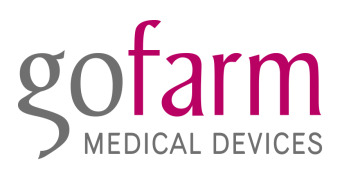Why is it worth investing in the development of pharmaceutical medical devices?

Pharmaceutical medical devices
The medical device sector of the market covers a broad spectrum of products. It is not just plasters, orthopaedic prostheses, stents, surgical instruments, diagnostic tests or devices that monitor patients' vital functions.
Is it worth to invest in the development of pharmaceutical medical devices? It is worth to mention the group of "pharmaceutical" medical devices, i.e. substances - consisting of substances or mixtures of substances in liquid, semi-liquid and solid forms, intended for use on the skin and mucous membranes.
The medical device sector
of the market covers a broad spectrum of products. It is not just plasters,
orthopaedic prostheses, stents, surgical instruments, diagnostic tests or
devices that monitor patients' vital functions.
Is it worth to invest in the development of pharmaceutical
medical devices? It is worth to mention the group of "pharmaceutical" medical devices,
i.e. substances - consisting of substances or mixtures
of substances in liquid, semi-liquid and solid forms, intended for use on the
skin and mucous membranes.
Medical devices have the
highest goal - the good and comfort of the patient in the process of
recovery as well as the comfort of chronically ill patients. Medical devices,
in the vast majority of cases, are the means to support the patient in their
daily functioning and resistance to the disease. Medical devices improve
patients' quality of life, e.g. a medical device in the form of a throat spray
— it moisturises and coats the oral mucosa in inflammatory conditions, thus
bringing relief and making swallowing easier.
WHAT ELSE MAKES DEVELOPING AND
INTRODUCING PHARMACEUTICAL MEDICAL DEVICES INTO YOUR COMPANY'S PRODUCT
PORTFOLIO A GOOD INVESTMENT?
- Medical devices support patients by making their lives more comfortable during illness. Among other things, they alleviate or eliminate the side effects of pharmacological agents, so they are a frequent choice for people who use medicines regularly. Substance medical devices often exhibit coating, moisturising, soothing and protecting properties for mucous membranes or skin, and provide relief, which in combination with the use of pharmacological agents creates comprehensive patient care and accelerates recovery.
- Strong claims (indications) related to disease entities — the specific ingredients used to manufacture the medical device and the substances contained therein have a proven effect thanks to a number of positive research and test results. Medical device status allows manufacturers to use broader medical indications and to refer to disease entities. This is not possible with cosmetics or dietary supplements.
- Quick addition to the product portfolio especially in the case of the distribution model, where it is possible to use your own brand without committing your own resources to the development and registration process. The application process for a medical device takes 14 days. (Whereas for medicines, the registration process takes as long as 210 days plus the additional time needed for clarification or completion of documentation).
- It is easier to market a medical device than a medicinal product — marketing a drug requires many processes, extensive documentation and constant supervision by the State Pharmaceutical Inspectorate, which watches over the process of marketing the product and, in case of any irregularities, immediately withdraws the medicine from the market. With the introduction of medical devices, the process is much easier and shorter, although no less demanding in terms of maintaining high product quality.
- Possibility to reimburse products for patients — patients may benefit from the reimbursement of certain medical devices (e.g. patients with a stoma), which is not possible in the case of e.g. cosmetics or dietary supplements. More favourable financial conditions are a natural choice for patients and significantly influence their purchasing decisions, which can mean added value from the perspective of the medical device manufacturer.
- Safety of the product and its use — medical devices are characterised by a high level of safety. They are subject to a high quality regime during the development process, manufacture and delivery to the patient. Medical devices are assessed clinically for efficacy as well as for safety by performing a range of biocompatibility tests. All medical devices are supervised by the Office for Registration of Medicinal Products, Medical Devices and Biocidal Products, whereas medical devices of classes higher than class I are additionally supervised by a notified body, which takes an active part in the assessment of conformity of the device, controlling, among others, the process of manufacturing the medical device. This approach minimises the risk of medical incidents, even with long-term use of the product, and ensures patient safety.
- Prestige and recognition of medical devices — due to the stringent quality requirements for pharmaceutical medical devices and the increasing knowledge of the processes required to place products on the market, a pharmaceutical medical device is a credible, trustworthy product in the eyes of a number of manufacturers as well as patients themselves, i.e. users.

Recently Visited
Position your company at the heart of the global Pharma industry with a CPHI Online membership
-
Your products and solutions visible to thousands of visitors within the largest Pharma marketplace
-
Generate high-quality, engaged leads for your business, all year round
-
Promote your business as the industry’s thought-leader by hosting your reports, brochures and videos within your profile
-
Your company’s profile boosted at all participating CPHI events
-
An easy-to-use platform with a detailed dashboard showing your leads and performance